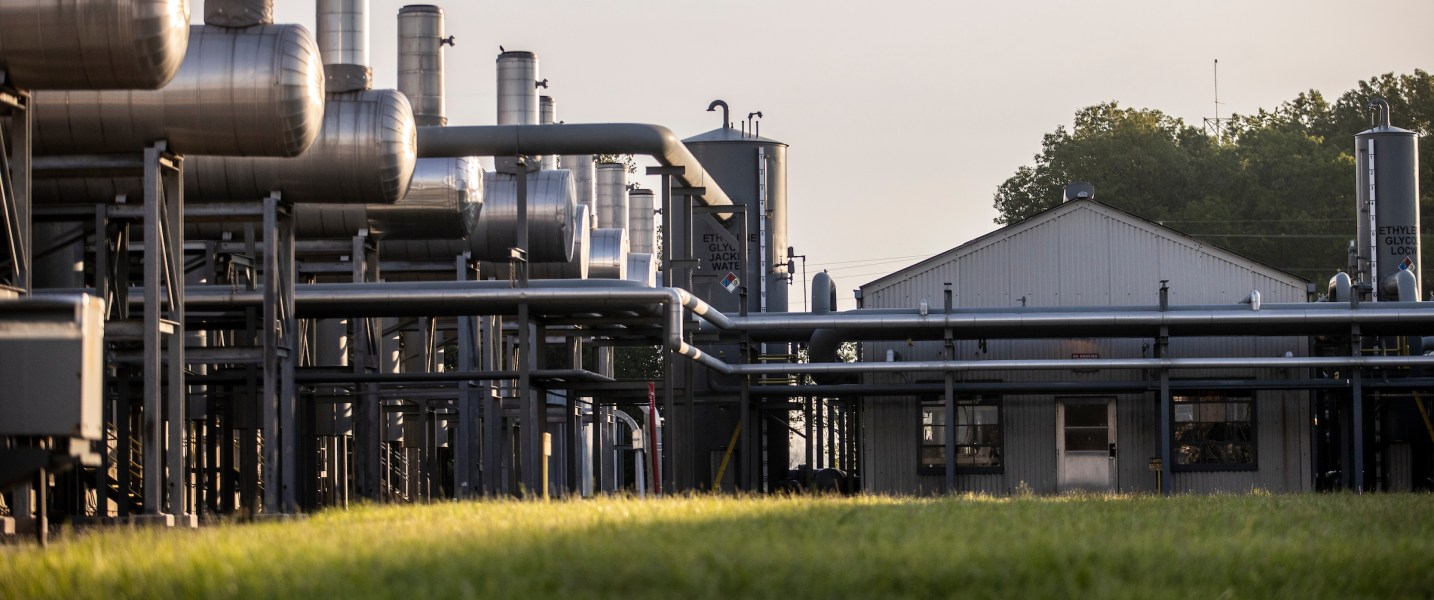Keeping natural gas in the pipeline is of utmost importance to Williams and our customers. It matters for safety, reliability, environmental and economic reasons.
Occasionally, we must take a miles-long section of pipeline out of service for planned maintenance or repair. This often means we need to temporarily remove natural gas from that section of the pipeline.
Traditionally, this is accomplished through either flaring or venting (also called a blowdown). Both are regulated processes. For emissions reasons, flaring (or burning) the gas is preferred when possible. This is because unburned methane released during venting is a more potent greenhouse gas than the CO2 released during flaring, according to the U.S. Department of Energy.
A third option – called recompression – is also available in certain situations. During recompression, the natural gas is not released to the atmosphere. Instead, a mobile recompression unit uses flexible hosing to transfer the gas to an adjacent pipeline or across a shutoff valve to send it safely down the line.
“Recompression is a great way for us to reduce methane emissions in our day-to-day operations,” said Glenn Koch, VP of Project Execution for Transmission.
Williams formed a pipeline maintenance emissions reduction work group that creates blowdown optimization tools, develops work practices and onboards new mobile compression and flaring vendors.
In 2022, Williams reported 48 separate events in which natural gas was rerouted or captured and recompressed instead of being vented. In doing so, Williams saved 0.9 billion cubic feet of gas, the equivalent of heating more than 21,692 homes for a year.
Maintaining strong customer relationships is essential to reducing emissions from maintenance events. Therefore, we work alongside our customers to determine mutually beneficial solutions to minimize emissions, enhance reliability and strengthen collaboration.
We’ve had a lot of success in our work to reduce emissions and maintain pipeline integrity. To read more, check out our latest Sustainability Report.
